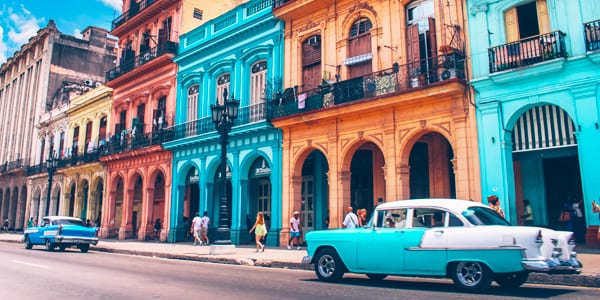The tourism and economic development sector is always shifting due to political climate, natural disasters, climate change, or an increase in crime. In order to navigate these changes, you have to become proactive in your approach and put a plan in place to help circumvent unpredictable situations that might arise.

President Trump recently tightened restrictions on traveling to Cuba by halting cruise travel and group educational and cultural trips under the “people-to-people” parameters. The people-to-people sanction allowed Americans to visit Cuba without having to have direct family, journalistic, religious, or business ties to their trip. The administration’s decision to remove funds out of the hands of Cuban “military, intelligence and security services” was an effort to inhibit the growth of the communist state.
With cruise travel being the most popular forms of tourism to Cuba, it will negatively affect the government, but could potentially hurt citizens who are privately profiting from tourism. The New York Times reported that from January 1 to April 30 of this year, 142,721 Americans visited the Caribbean island by cruise ship. There were also 114,832 American tourists (not including those visiting relatives) who traveled by plane. This led to more tourist dollars being pumped into the local economy, especially with the Caribbean generating 15.5 percent more economic activity in 2017 than in previous years, according to Forbes.
To circumvent this, many tour operators in Cuba are finding loopholes within the restrictions and changing their businesses to fall under one of the 11 purposes for travel that the U.S. options, “support for Cuban people.” To be compliant with the new restrictions, they are turning to a more voluntourism approach with a potential for economic development that makes a more direct impact to the lives of the Cuban people. Under this parameter, itineraries will need to be approved by the United States government and will consist of meetings and visits to local business owners and artists, as well as participation in local activities and staying in a private home rather than a hotel.
With local Cuban tourism operators taking a more voluntourism approach as a response to these sanctions, it could directly grow that type of tourism on the island. We’ve seen travelers shifting their reasons to visit when political climates and natural disasters alter the travel landscape. Although voluntourism is sometimes seen as negatively affecting the economy, there is a potential for it to directly affect the economic development of locals on the island.
Ultimately, in the upcoming months, we will see how this will affect other destinations within the Caribbean. With major cruise lines redirecting their courses to nearby ports, we could potentially see an uptick in the economic development of neighboring destinations in the region. Destinations should continue to monitor the news and changes in neighboring countries as it could affect their tourism and economic landscape.


